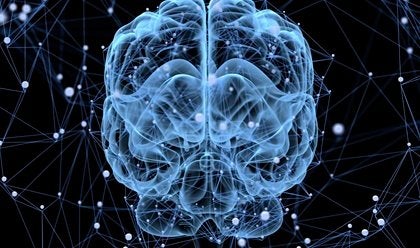Is your brain resting? We are often advised to “turn it off” to reduce its activity, however, we must understand that even in a state of calm, such as when we practice meditation or when we rest at night, this sensational organ continues to function. waves and the way you exercise your neural connections may vary.
Every living organism is constantly functioning. Each cell undergoes constant metabolic changes and, therefore, the term “rest” is clearly not feasible in any organ clearly linked to life. If a cell’s activity stops, it dies. Now, although we know this, we wonder if our brain stops at some point.
- The question follows different motivations.
- One of them is that we often think that we have absolute control over this organ.
- As an entity where our reasoning.
- Desires.
- Projects and decisions are articulated.
- We come to believe that we have some control over it.
- When in reality it is not.
When we sleep, he doesn’t sleep. In fact, it is incredibly active, moreover, however impressive it may seem, at times when we experience more stress and anxiety, it presents a greater disconnection, because it cannot be aware of so many stimuli, we also have memory problems, lack of attention?It is a perfect machine that deserves to be known in depth.
“If our brains were simple enough to understand, we wouldn’t be smart enough to understand it. “David Eagleman?
The brain has a vital function, like all cells, tissues, organs and living systems of our body, however, in addition to the simple tasks related to metabolism, protein production, oxygen consumption and other essential tasks for life, the brain has other goals. .
It houses these centers of power where we articulate cognition, consciousness and all unconscious processes over which we have no control. The brain is constantly occupied, both in the wakefulness and sleep phases. Although it is in the REM phase, its electrical activity is very intense, remembering that it never rests.
Dr. Marcus E. Raichie, neurologist at the University of Washington, St. Louis, Missouri, called these processes and decisions that we often make without being fully aware of them as “black energy. “An example: we take a nap and suddenly a fly lands on our nose.
In less than a second we managed to keep the insect away, we didn’t have to think about it, the answer is automatic, besides, the famous David Eagleman explains in his book?Incognito? That, to know if the brain rests, we must understand a simple aspect: if it did, we would cease to be all that we are; We are also obliged to assume that there is indeed a dark side of this organ, an veiled dimension over which I have no control.
As Sigmund Freud said, the human brain and mind are largely governed by unconscious tasks and acts; those over whom we have no control.
We already know that the brain does not sleep at night, no matter if we are immersed in the depths of the dream universe: it remains incredibly active, however, there is an interesting fact: it works differently and . . . few cells to rest. Giulio Tononi, an expert in the study of consciousness and sleep disorders at the University of Wisconsin-Madison, conducted a study to demonstrate something very interesting.
In addition to the classic question of whether the brain is at rest or not, it is also common for us to wonder if there is any way to make it more effective, so one thing we should be clear about is that hyperstimulation is one of its worst enemies. Suffering stressful situations, constant concerns or always being on the screens of our electronic devices has a serious impact on brain health.
Therefore, the ideal is to carry out activities that promote states of harmony, there are processes that balance your functions, stimulate you positively and improve your skills, are:
In conclusion, let us remember again that the brain never rests, however, even if it does not, does not mean that we do not either, follow the same routines, take care of our emotions and our sleep hygiene is the key. to the well-being of the brain (and ours).

